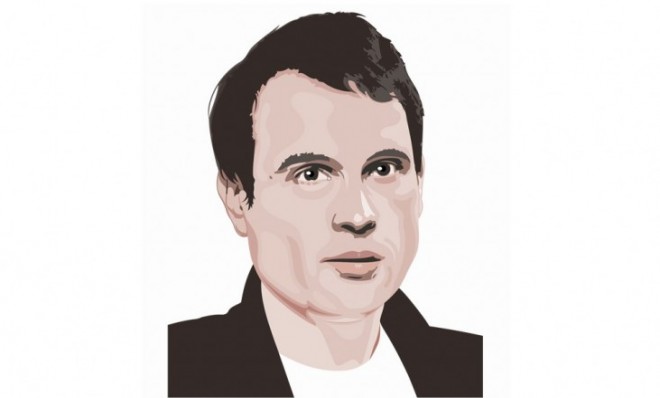What these late deciders really want
To feel good (and valued)


A free daily email with the biggest news stories of the day – and the best features from TheWeek.com
You are now subscribed
Your newsletter sign-up was successful
No one hails the undecided voter. Or the late-deciding voter. Or the foolish voter. Or the swing voter. Instead, we throw ridicule their way, we know-it-alls, we denizens of the political class who knew from Day One for whom we were going to vote, and for whom the election is mainly a television show.
We make much of political science data showing that late deciders tend to be "low information voters" who choose candidates based on personality characteristics and media narratives — emotional things — rather than rationally delving into policy papers and making the utilitarian decision.
But many voters in these categories do know a lot about the candidates. They know more about some policies than, well, I do, and I study this stuff for a living. In fact, in some ways, they confound the stereotypes about them.
The Week
Escape your echo chamber. Get the facts behind the news, plus analysis from multiple perspectives.

Sign up for The Week's Free Newsletters
From our morning news briefing to a weekly Good News Newsletter, get the best of The Week delivered directly to your inbox.
From our morning news briefing to a weekly Good News Newsletter, get the best of The Week delivered directly to your inbox.
A large number of people who won't say who they want to vote for really just want to pick the winner. (This is THE reason why Mitt Romney's strategy includes a lot of braggadocio.)
The late-deciders are disproportionately women.
There are proportionately fewer of them each cycle, probably a consequence of ideological polarization and sorting.
Some of them are undecided because they expose themselves to a diverse array of information, which is a good thing.
A free daily email with the biggest news stories of the day – and the best features from TheWeek.com
I propose that we break the category. This makes the story more complicated to tell, but it is more accurate.
There are sporadic voters — people for whom voting is not habitual but are persuadable in one direction. Some pollsters call these voters "elastic." What determines whether they will vote? Not just the candidate, but (usually) two of the following three factors: (a) they like the current guy a lot (b) they worry about what the other guy is going to do or (c) they truly are single-issue voters and their party's candidate triggers their interest. The campaigns are looking at these voters.
There are independent voters — people who do not identify with either party, ideologically or officially, and tend to vote in every election. They tend to be socially modern and fiscally more conservative. They make up, at most, about 3 percent of the national electorate. To the extent that they are not ideologically reliable, they tend to be either "crisis" voters or "disaffected" voters. The press is obsessed with these voters.
There are reluctant-to-acknowledge-they-will-vote-voters — voters who do vote and will vote but insist for social reasons on maintaining the illusion (even to themselves) that they are independent. The political class frowns upon these voters.
And then there are new voters; younger folks just acquiring the right or newly registered.
To the extent that these voters have anything in common, it is, to borrow a phrase from William Mayer, that they are ambivalent and cross-pressured.
And they don't like to be insulted.
Marc Ambinder is TheWeek.com's editor-at-large. He is the author, with D.B. Grady, of The Command and Deep State: Inside the Government Secrecy Industry. Marc is also a contributing editor for The Atlantic and GQ. Formerly, he served as White House correspondent for National Journal, chief political consultant for CBS News, and politics editor at The Atlantic. Marc is a 2001 graduate of Harvard. He is married to Michael Park, a corporate strategy consultant, and lives in Los Angeles.
